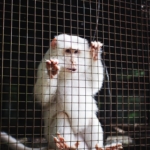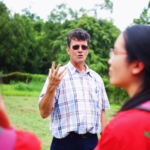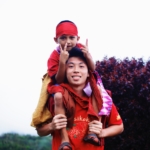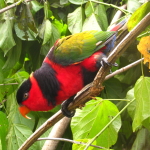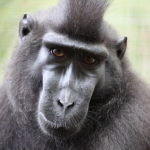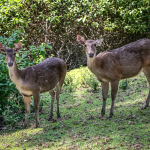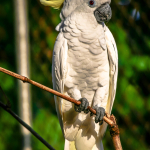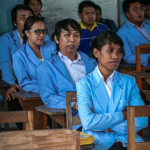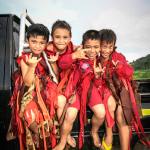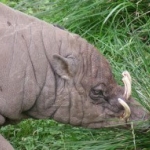This centre is one of the several wildlife rescue centres and wildlife transfer stations set up by the Gibbon Foundation to care for the ever increasing inflow of confiscated illegally kept and traded wildlife within Indonesia.
The Tasikoki centre has been established in a strategic location to tackle the cross-border trade from Indonesia towards the Philippines and onwards to China, Taiwan and Japan. Sulawesi, being the closest Indonesian island to the Philippines, has been exploited as a consolidation point for illegal shipments of wildlife and wildlife products from Java, Sumatra, Borneo and the islands in the Eastern part of the Indonesian archipelago, especially Papua. Orangutans, sun bears, gibbons, tarsiers, lorises and pangolins were some of the most endangered mammals smuggled out of the country; however cockatoos, hornbills, birds of paradise as well as turtles and other reptiles were shipped out in even bigger quantities.
Without a sustainably run rescue facility, the authorities would not be able to enforce wildlife laws, raid and confiscate live animals, hence the Tasikoki wildlife rescue centre was intended to be instrumental in stopping this trade. In addition there is a thriving bush meat trade in North Sulawesi that brings in bush meat of protected species such as the Sulawesi macaques, the anoa dwarf buffalo and the very rare babirusa, from all over the island of Sulawesi. Tasikoki has been involved in many raids on such bush meat transports.
In addition the former headhunter tribes of the North Sulawesi highlands use primate and hornbill skulls to decorate their red and fierce costumes, again necessitating the hunting of the little remaining wildlife in this densely populated province with little forest habitat left undisturbed. Last but not least, Sulawesi is one of the islands with a large degree of endemicity, making it even more important to have a centre here that could contribute to stopping wildlife trade.
From 2007-2009, Tasikoki suffered severe lack of funding and has since been restructured under new management. From the beginning of 2010, Tasikoki became a unit within the Masarang Foundation.
The current team at Tasikoki are trying to establish financial self-sustainability of the project, develop capacity to recommence active rescue and education work, as well as develop the knowledge and standards of the local staff for the better care of captive wildlife.
